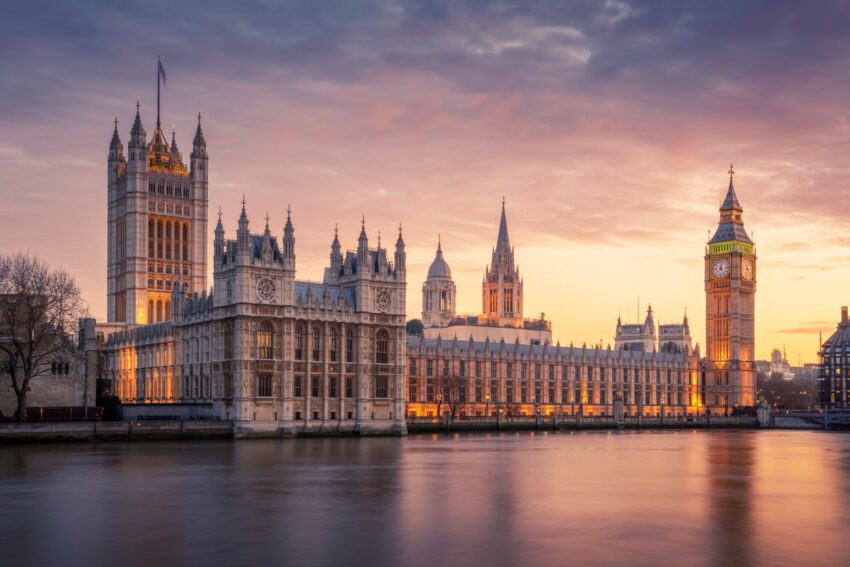Canada Joins Mexico, Brazil, Germany, France, UK, and More to Face New Travel Changes as US Imposes New Visa Policy and Biometric Entry-Exit System: Everything You Need to Know

From December 26, 2025, Canada, Mexico, Brazil, Germany, France, UK, and more will face US travel changes, including biometric checks and updated visa policies to enhance security and tracking. These changes will impact how foreign nationals, including citizens from the listed countries, enter and exit the U.S. With facial recognition scans and fingerprinting now mandatory, travellers should expect longer wait times at airports, seaports, and land borders. Alongside the biometric system, the U.S. will enforce new visa requirements, such as a minimum salary threshold for H-1B workers, aiming to improve tracking, prevent overstays, and reduce document fraud. This article breaks down everything you need to know to navigate these new U.S. travel protocols.
US Introduces Biometric Entry-Exit System Affecting Indian Travellers
Starting December 26, 2025, United States will launch a new biometric entry–exit system for all foreign nationals, including Indian citizens, to strengthen border security and verify traveller identities. Implemented by the Department of Homeland Security (DHS) and U.S. Customs and Border Protection (CBP), the system will use facial recognition and fingerprint scans at airports, seaports, and land borders. Designed to prevent visa overstays and detect document fraud, it removes previous exemptions for children and senior travellers. While U.S. citizens can opt out, foreign nationals must comply. Indian travellers should expect facial scans at automated kiosks and possible initial delays during rollout, ensuring documents are updated before travel. Despite privacy concerns, officials promise secure data management. The system marks a major move toward efficient, technology-driven immigration processes, aiming for safer, faster, and more transparent travel experiences.
Canada’s Border Days Are Ending as Biometric Checks Tighten US Crossings

Canadian travellers, long accustomed to breezing through US land crossings, will soon face formal biometric verification. Facial recognition will now be mandatory for all non-U.S. citizens, including Canadians, entering and leaving the country. The new process will be applied at airports, ports, and land borders alike. Although visa rules remain unchanged, these digital scans will replace informal tracking and confirm both entry and exit. Regular commuters and “snowbirds” heading south for winter should expect slower queues and enhanced checks during the rollout phase, marking a more controlled and traceable border process.
| Aspect | Details |
|---|---|
| Mode affected | Air, land, and sea crossings |
| Main change | Mandatory facial recognition for all Canadian travellers |
| Effect on visas | None |
| Expected issue | Longer wait times at major crossings |
| Privacy coordination | Joint Canada–U.S. protocols under review |
Mexico’s Daily Cross-Border Routine Faces Biometric Reality at US Gates

For millions of Mexicans crossing into the US each day, the biometric rule will transform their border experience. Every traveller will now have facial data captured at both entry and exit, recorded under the Department of Homeland Security’s tracking system. While visas and entry categories remain the same, the once-casual exits at busy land ports will be replaced by structured, photo-based verification. This step ensures more accurate movement data and reduced document fraud. The Mexican government is coordinating with U.S. officials to streamline these checks and prevent congestion at high-traffic crossings like Tijuana and Laredo.
| Aspect | Details |
|---|---|
| Mode affected | Primarily land crossings |
| Main change | Compulsory biometric verification at entry and exit |
| Effect on visas | No change |
| Expected issue | Congestion at border checkpoints |
| Cross-border plan | Coordination with Mexican immigration services |
Brazil’s Jet-Setters Prepare for Facial Recognition at Every US Airport

Brazilian travellers flying to the US will soon experience advanced biometric screening at both arrival and departure points. The system, which uses high-speed facial recognition, aims to prevent identity fraud and confirm timely exits. Popular gateways such as Miami, Orlando, and New York are introducing new biometric kiosks for faster verification. Visa procedures remain unchanged, but the process will now include a compulsory facial scan. Brazilian airlines and travel agencies are urging passengers to check in earlier and be prepared for the extra verification step, ensuring a smooth transition during the initial implementation phase.
| Aspect | Details |
|---|---|
| Mode affected | Air travel |
| Main change | Mandatory facial recognition at airports |
| Effect on visas | None |
| Expected issue | Minor delays during transition |
| Government advice | Familiarise with U.S. biometric policy |
Germany’s Travellers Enter a New Biometric Era at U.S. Borders

German nationals heading to the US will face the same sweeping biometric entry-exit rule effective from 26 December 2025, meaning facial recognition—and possibly fingerprint capture—will de facto become part of their travel routine. Although Germans enjoy visa-waiver status under the Visa Waiver Program, this change does not affect visas or length of stay but strengthens identity verification and departure tracking. Germany’s strong travel ties with the USA mean frequent flyers (business, study, leisure) should budget extra time at U.S. points of entry and exit, especially while the system is newly rolled out.
| Aspect | Details |
|---|---|
| Affected travellers | German nationals travelling to/from the U.S. |
| Main change | Facial recognition + biometrics at U.S. entry and exit |
| Visa impact | None (visa-waiver status remains) |
| Potential issue | Initial longer processing times |
| Advice | Allow more time and keep travel documents read |
UK’s Frequent Flyers Brace for Facial Scans at U.S. Immigration

For British citizens, the US’s new biometric entry-exit system introduces additional identity checks at arrival and departure points from late December 2025. Despite the fact that Brits already travel under the Visa Waiver Programme, the upcoming system will make exit tracking more formal and biometric verification obligatory. The change is especially relevant for UK-USA business links, academic exchanges and tourism. While the process won’t impact visa eligibility or duration, UK travellers are advised to arrive a little earlier for immigration clearance, and to ensure their biometrically enabled travel documents are in order.
| Aspect | Details |
|---|---|
| Affected travellers | UK citizens using U.S. ports of entry/exit |
| Main change | Mandatory facial recognition and biometric checks |
| Visa impact | No change to visa-waiver or authorised stay |
| Potential issue | Some delay during peak immigration hours |
| Advice | Use biometric passport, reach early, monitor updates |
France Faces Strengthened U.S. Exit-Tracking for Visitors Abroad

French nationals travelling to the United States will be subject to the newly expanded biometric entry-exit regime from 26 December 2025. While France currently sends many tourists, students and professionals to the U.S., the change means each traveller’s departure will be tracked more reliably using facial recognition tied to their passport. Although there are no new visa restrictions, the enhanced system underscores the importance of keeping travel documentation in good order. French travel agencies are advising clients to allow for slight processing lag at major U.S. airports during the early phase.
| Aspect | Details |
|---|---|
| Affected travellers | French citizens travelling to/from the U.S. |
| Main change | Biometric capture (face + possible fingerprint) at entry/exit |
| Visa impact | None (existing visa and stay rules unchanged) |
| Potential issue | Slight queue lengthening during rollout |
| Advice | Stay informed via embassy/travel advisories, carry valid passport |
Visa Impact Summary Table (Updated with H-1B Salary Reference)
| Country | Visa Category / Programme | Impact of New Biometric System | Compliance Requirement | Possible Future Implications |
|---|---|---|---|---|
| India | B1/B2 Tourist, F1 Student, H1B (USD 100,000 minimum salary rule) | No change in visa length, but the U.S. is enforcing a new USD 100,000 minimum salary threshold for H-1B visa petitions to ensure only highly paid, skilled workers qualify. Biometric exit tracking becomes compulsory for all visa types. | Indian citizens on work or study visas must maintain accurate biometric records and proof of departure. | Non-compliance with exit logging or failure to meet salary criteria may impact visa renewals or eligibility. |
| Canada | Visa-exempt (no ESTA required) | Visa-exempt status remains; biometric checks tighten border movement tracking. | Canadians must complete biometric scans during entry and exit. | Longer stays or missed exit records could trigger additional scrutiny. |
| Mexico | B1/B2 and Border Crossing Card Holders | No policy change, but exit verification is now mandatory. | Mexican nationals must ensure every crossing is biometrically logged. | Repeated unlogged crossings could affect BCC renewals or U.S. entry privileges. |
| Brazil | B1/B2, Student, and Business Visas | Visa validity unchanged; biometric tracking improves monitoring. | Travellers must participate in both entry and exit facial scans. | Visa renewal could depend on verified exit records. |
| Germany | Visa Waiver Programme (ESTA) | ESTA unchanged; exit tracking adds accuracy. | German travellers must confirm departure registration. | Inconsistent data could affect future ESTA approvals. |
| United Kingdom | Visa Waiver Programme (ESTA) | No change to ESTA rules; biometric exit tracking becomes mandatory. | UK visitors must ensure both entry and exit scans complete. | Data mismatch may result in ESTA ineligibility. |
| France | Visa Waiver Programme (ESTA) | Visa rules unchanged; biometric verification now required. | French travellers must verify that biometric exit records are captured. | Future ESTA validity may rely on precise departure tracking. |
Starting December 26, 2025, Canada, Mexico, Brazil, Germany, France, UK, and more will face US travel changes, including biometric checks and updated visa policies to enhance security and tracking. This aims to strengthen border security and improve tracking of foreign nationals using biometric data.
Conclusion
Canada, Mexico, Brazil, Germany, France, UK, and more will face U.S. travel changes, including biometric checks and updated visa policies to enhance security and tracking. These new measures are being implemented to strengthen U.S. border security and improve the tracking of foreign nationals, ensuring safer and more transparent travel experiences for all affected countries.
The post Canada Joins Mexico, Brazil, Germany, France, UK, and More to Face New Travel Changes as US Imposes New Visa Policy and Biometric Entry-Exit System: Everything You Need to Know appeared first on Travel And Tour World.